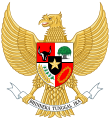
The South African Republic, also known as the Transvaal Republic, was an independent Boer republic in Southern Africa which existed from 1852 to 1902, when it was annexed into the British Empire as a result of the Second Boer War.

The Orange Free State was an independent Boer sovereign republic under British suzerainty in Southern Africa during the second half of the 19th century, which ceased to exist after it was defeated and surrendered to the British Empire at the end of the Second Boer War in 1902. It is one of the three historical precursors to the present-day Free State province.

The Boer republics were independent, self-governing republics formed by Dutch-speaking inhabitants of the Cape Colony and their descendants. The founders – variously named Trekboers, Boers, and Voortrekkers – settled mainly in the middle, northern, north-eastern and eastern parts of present-day South Africa. Two of the Boer republics achieved international recognition and complete independence: the South African Republic and the Orange Free State. The republics did not provide for the separation of church and state, initially allowing only the Dutch Reformed Church, and later also other Protestant churches in the Calvinist tradition. The republics came to an end after the Second Boer War of 1899–1902, which resulted in British annexation and later incorporation of their lands into the Union of South Africa.

The Volksraad of the South African Republic was the parliament of the former South African Republic (ZAR), it existed from 1840 to 1877, and from 1881 to 1902 in part of what is now South Africa. The body ceased to exist after the British Empire's victory in the Second Anglo-Boer War. The Volksraad sat in session in Ou Raadsaal in Church Square, Pretoria.

The Colony of Natal was a British colony in south-eastern Africa. It was proclaimed a British colony on 4 May 1843 after the British government had annexed the Boer Republic of Natalia, and on 31 May 1910 combined with three other colonies to form the Union of South Africa, as one of its provinces. It is now the KwaZulu-Natal province of South Africa.
Jacobus Groenendaal was a South African statesman of Dutch origin, member of the Volksraad of the Orange Free State and the republic's first Treasurer General and Government Secretary in office from 1854 to 1855 and 1856 respectively.

The Indonesian Political Federation was an umbrella organization of various nationalist organizations in the Dutch East Indies which existed from 1939 to 1942. Founded to unite the nationalist movement, GAPI championed the creation of an Indonesian parliament in exchange for cooperation with the Dutch colonial government. The federation consisted of eight political parties. GAPI was dissolved shortly after the invasion of the colony by the Empire of Japan in 1942.

The Volksraad was an advisory, and later semi-legislative institution for the Dutch East Indies, provided for by law in 1916 but only established with the actual installation of the Council in 1918. It was a hesitant and slow attempt at democratisation of the Dutch East Indies as part of the "ethical policy" adopted by the Dutch government. The power of the Volksraad was limited as it only had advisory powers. Although part of the council was elected, only a small proportion of the population had voting rights.

Elections to the Volksraad were held in the Dutch East Indies on 16 October 1917. The result was a victory for the Dutch Indies Freethinkers Association, who defeated the Protestant Christian Ethical Party and the Catholic Indian Catholic Party.
Elections to the Volksraad were held in the Dutch East Indies in 1921. The result was a victory for the Political Economic Union.

Elections to the Volksraad were held in the Dutch East Indies in 1927.

Elections to the Volksraad were held in the Dutch East Indies in 1931.

The governor-general of the Dutch East Indies represented Dutch rule in the Dutch East Indies between 1610 and Dutch recognition of the independence of Indonesia in 1949.

Mohammad Husni Thamrin was a Eurasian-Betawi political thinker and Indonesian nationalist who advocated for the independence of the Dutch colony in the East Indies. After his death, he was regarded as an Indonesian National Hero.

Parindra was the name used by two Indonesian political parties.
Elections to the Volksraad were held in the Dutch East Indies in 1935.
Chung Hwa Hui was a conservative, largely pro-Dutch political organization and party in the Dutch East Indies, often criticised as a mouthpiece of the colonial Chinese establishment. The party campaigned for legal equality between the colony's ethnic Chinese subjects and Europeans, and advocated ethnic Chinese political participation in the Dutch colonial state. The CHH was led by scions of the 'Cabang Atas' gentry, including its founding president, H. H. Kan, and supported by ethnic Chinese conglomerates, such as the powerful Kian Gwan multinational.
Elections to the Volksraad were held in the Dutch East Indies in 1939. Only ten percent of the population was allowed to vote, but this was only to choose 937 electors, who together with another 515 government appointees, in turn elected 38 of the 60 members. The remainder were appointed directly by the colonial government.

Abdoel Firman Siregar gelar Mangaradja Soangkoepon was a politician and Volksraad member in the Dutch East Indies. He was an Indonesian nationalist and was a political ally of many of the leaders who came to power in the early independence era, although he himself died before the country achieved its independence.
Abdul Rasjid Siregar gelar Mangaradja Mahkota Soeangkoepon, commonly known as Dr. Abdul Rasjid, was a politician and physician in the Dutch East Indies. He was elected or appointed to the Volksraad from 1931 to 1942, during which time he sat with the Indonesian nationalist faction. During the 1930s, he became convinced that public health and cooperation with traditional healers should be central to the mission of physicians in the Indies.















